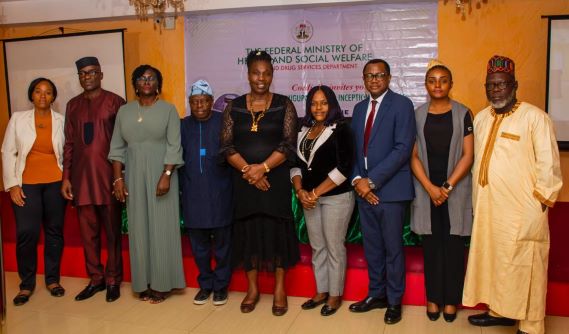…Inaugurates Technical Working Group
By Hassan Zaggi
Worried by the excessive intake of salt by most Nigerians which has health consequences, the Federal Government has taken steps to improve the eating habits of Nigerians.
To achieve this, the government, on Tuesday, inaugurated a Technical Working Group (TWG) on Sodium Reduction.
The inauguration ceremony was supported by Resolve to Save Lives, a Non Governmental Organisation and other local and international organisations.
Speaking while inaugurating the TWG, the Permanent Secretary in the Federal Ministry of Health and Social Welfare, Kachollom Daju, said that the Health Ministry is determined to formulate policies and national strategies “with the aim of the creating environment for Nigerians to consume adequate quantities of safe and nutritious foods with appropriate salt content and improve dietary habits of the masses.”
Reducing Salt intake, according to her, is one of the most effective measures to improve health and reduce the burden of non-communicable diseases, as it can avert a large number of cardiovascular event and deaths at very low public health costs.
She revealed that, “the increasing high sodium (salt) consumption in Nigeria has also increased the risk of cardiovascular diseases, gastric cancer, obesity, osteoporosis and kidney disease.”
She lamented that although, it is also a known fact that sodium is an essential nutrient necessary for maintenance of body plasma volume; acid-base balance; transmission of nerve impulse and normal cell function, but dietary sodium consumption which is dependent on cultural and dietary habits of citizens had led to over consumption.”
The Permanent Secretary explained that the National Technical Working Group on Sodium Reduction (NTWG-SR) is expected to develop a comprehensive National Sodium Reduction Guideline for an effective and efficient approach to sodium Reduction in the country.
The TWG, she said, is also expected to coordinate the overall operationalisation of the developed National Guideline and set a timeline for its implementation.
While charging the TWG to take the work serious and see it as a call to national assignment, she said: “According to WHO, globally, excess of sodium intake is responsible for about 1.65 million deaths annually and average sodium intake in 181 countries is twice the level recommended by World Health Organisation (WHO).
“This sodium intake comes from variety of natural foods like milk, meat, shellfish, and processed foods such as breads, processed meat, snacks, spices as well as in bouillon cubes.
“By Inaugurating the National Sodium Reduction Technical Working Group today, we expect the TWG to be efficient, productive and impactful in the development of the National Sodium Reduction Guideline that will provide an overarching guidance for the implementation of the WHO SHAKE Project on salt intake reduction in the country in order to meet the set target of year 2025 deadline.”
On her part, Head of Department, Food and Drug Services, at the Federal Ministry of Health and Social Welfare, Mrs. Adeola Yusuf, listed some of the actions and strategies by the Ministry to reduce national sodium consumption to include formulating policies to reduce salt content in the national food chain and proposing development of mandatory sodium limits in processed foods.
She, therefore, insisted that, “industries, small and medium sized food products enterprises and local food vendors must be closely monitored and sensitized to ensure compliance with clearly defined national food safety standards.”
Mrs Yusuf, further lamented that NCDs of which excessive salt intake is a major risk factor are significantly on the rise in Nigeria.

She, revealed that certain staple foods in Nigeria such as bread, suya, snacks, noodles, shrimps among others are high in sodium which could cause cardiovascular disease in human when ingested.



